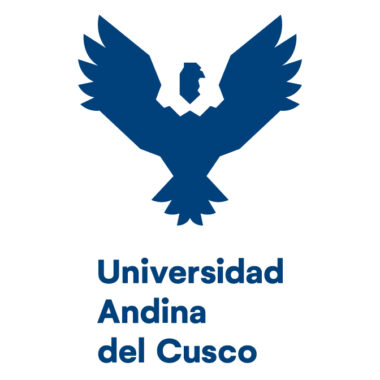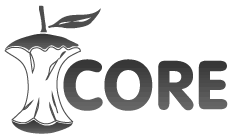Gestión del tiempo académico en estudiantes de psicología: un estudio comparativo
DOI:
https://doi.org/10.36881/yachay.v9i01.221Keywords:
Time management, psychology students, study comparativeAbstract
Academic time management is the ability to plan, organize and prioritize activities related to studies, using tools and resources to manage an effective use of time. The objective of the research was to analyze the differences of sex and age in relation to time management in psychology students. The research method is quantitative and comparative type, the design is non-experimental and cross-sectional court. 253 students of both sexes in a range of 17 to 53 years who answered the Time Management Behavior Scale (TMBS) participated. The results indicate that there are differences in the perception of time control linked to sex (U = 4465, p = .00, r = .17), although to a small extent. Likewise, there were no differences in relation to age. In conclusion, men present higher scores to reflect on the usefulness of their time and academic activities compared to women.
Downloads
References
Akcoltekin, A. (2015). High school students' time management skills in relation to research anxiety. Educational Research and Reviews, 10(16), 2241-2249. doi:10.5897/ERR2015.2345 DOI: https://doi.org/10.5897/ERR2015.2345
Ato García, M., & Vallejo Seco, G. (2015). Diseños de investigación en psicología. Madrid: Pirámide.
Britton, B., & Tesser, A. (1991). Effects of time-management practices on college grades. Journal of educational psychology, 83(3), 405-410. doi:10.1037/0022-0663.83.3.405 DOI: https://doi.org/10.1037/0022-0663.83.3.405
Durán, E., & Pujol, L. (2013). Manejo del tiempo académico en jóvenes que inician estudios en la universidad simón bolívar. Revista Latinoamericana de Ciencias Sociales, Niñez y Juventud, 11(1), 93-108. https://bit.ly/3aB66Pz
Garzón, A., & Gil, J. (2017). Gestión del tiempo en alumnado universitario con diferentes niveles de rendimiento académico. Educacao e Pesquisa, 44(0), 1-13. doi:10.1590/s1678-4634201708157900 DOI: https://doi.org/10.1590/s1678-4634201708157900
Gómez, J. (2013). Gestión del tiempo como dimensión de la competencia informacional. Anuario ThinkEPI, 7, 28-36. https://bit.ly/3aETBmm
Gross, J., & Ligges, U. (2015). Nortest: Tests for normality. R package versión 1.0-4. https://bit.ly/2VBmsDG
Instituto Nacional de Estadística e Informática. (2010). Encuesta nacional de uso del tiempo 2010. https://bit.ly/2S53ROf
Kassambara, A. (2020). ggpubr: 'ggplot2' based publication ready plots. R package versión 0.2.5 . https://bit.ly/2VyhHuC
Macan, T. (1994). Time management: Test of a process model. Journal of applied psychology, 79(3), 381-391. doi:10.1037/0021-9010.79.3.381 DOI: https://doi.org/10.1037/0021-9010.79.3.381
Macan, T., Shahani, C., Dipboye, R., & Phillips, A. (1990). College students time management: Correlations with academic performance and stress. Journal of educational psychology, 82(4), 760-768. doi:10.1037/0022-0663.82.4.760 DOI: https://doi.org/10.1037/0022-0663.82.4.760
Mangiafico, S. (2020). rcompanion: Functions to support extension education program evaluation. R package versión 2.3.25. https://bit.ly/2yGneq4
Marcén, M., & Martínez, N. (2012). Gestión del tiempo de los universitarios evidencias para estudiantes de primer curso de la universidad de zaragoza INNOVAR. Revista de ciencias administrativas y sociales, 22(43), 117-130. https://bit.ly/355VA1O
Monroy Riva, P. (2017). Estrés académico y manejo de tiempo en estudiantes universitarios de Lima, Perú. [Tesis de licenciatura, Pontificia Universidad Católica del Perú], Repositorio PUCP. https://bit.ly/3eQRG1g
R Core Team. (2019). R: A language and environment for statistical computing version 3.6.2 [software]. . Viena: R Foundation for Statistical Computing. https://bit.ly/3cDketc
Wang, W., Kao, C., Huan, T., & Wu, C. (2010). Free time management contributes to better quality of life: A study of undergraduate students in Taiwan. Journal of happiness studies, 12(4), 561-573. doi:10.1007 / s10902-010-9217-7 DOI: https://doi.org/10.1007/s10902-010-9217-7
Additional Files
Published
How to Cite
Issue
Section
License
You are free to:
- Share — copy and redistribute the material in any medium or format
- Adapt — remix, transform, and build upon the material
- The licensor cannot revoke these freedoms as long as you follow the license terms.
Under the following terms:
-
Attribution — You must give appropriate credit, provide a link to the license, and indicate if changes were made. You may do so in any reasonable manner, but not in any way that suggests the licensor endorses you or your use.













